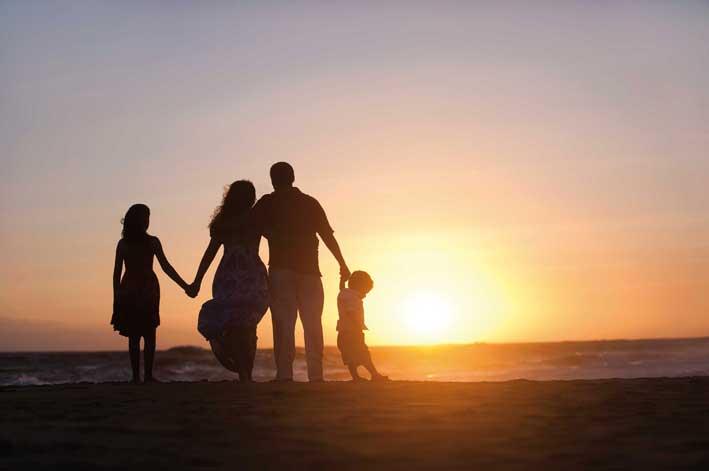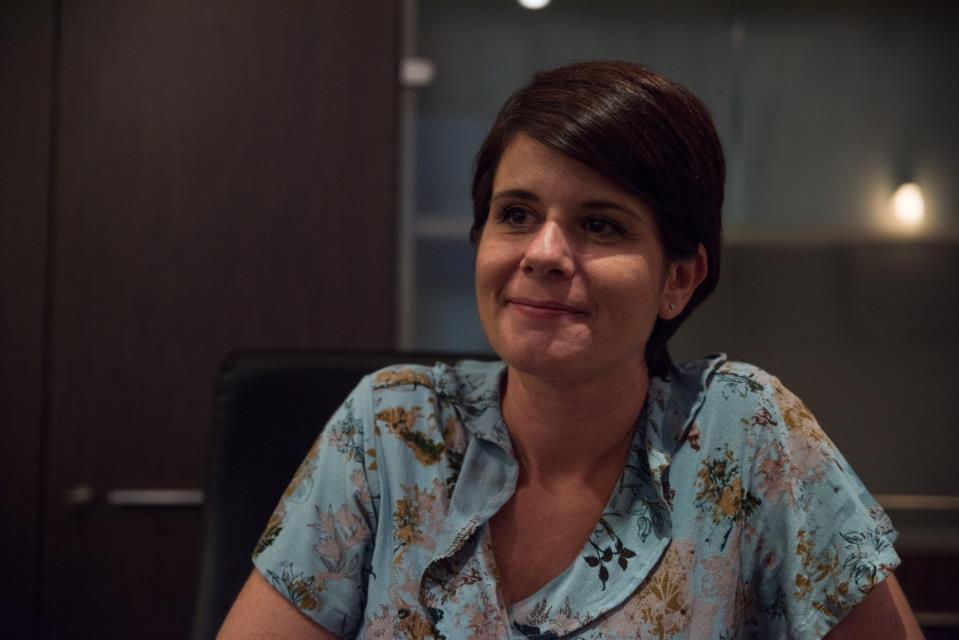Parental alienation is a silent but common phenomenon in Malta which is often inadvertently made worse by the court itself for failing to address the matter in an effective and timely manner, family lawyer and lecturer Robert Thake told the Malta Independent.
After the NGO Happy Parenting – Malta (for Happier Children) spoke to this newsroom about the issue of parental alienation, The Malta Independent spoke to family lawyers Lara Dimitrijevic and Robert Thake.
Parental Alienation is a process which involves one parent trying to ensure that the child does not have a healthy relationship with the other parent, by blocking contact or psychologically manipulating the child. This estrangement between one of the parents and the child may have very negative effects.
The NGO had remarked that parental alienation still presently remains an issue in Malta as it is not being clearly identified within the courts.
Thake explained that the problem with parental alienation, which he says is often made worse by the court itself, is generally two-fold.
“Firstly, the way certain proceedings are conducted are by their very nature designed to take long, and during this time, parents are often left without their children. Secondly, the law is lacking insofar as parental alienation is concerned and as such judges lack the guidance necessary to properly follow-through,” he said.
"Gender politics in the family courts are the result of judges’ personal beliefs and unconscious biases which they harbour.”
The NGO had also highlighted that Malta’s Family Court system involves a “winner-takes-all” approach which is encouraging and producing alienating behaviour.
Thake expressed his belief that “the Maltese courts do not adopt a “winner-takes-all” approach but nor does it permit equality in the form of “co-parenting.”
He added that “many courts believe that a child must have a primary carer who is a parent who it designates as the ‘main’ parent. This in itself creates an imbalance between parents since if one parent is the ‘primary’ carer, the other parent is by consequence the ‘secondary carer’.”
“Certain courts also still believe that sleepovers during the week are contrary to the best interests of the child such that the non-primary carer is forced to enjoy roughly six hours with their children between Monday and Friday,” Thake said.
“The courts have also taken it upon themselves to prevent parents from reaching amicable settlements by not authorising separation contracts if the parents attempt to adopt a co-parenting arrangement.”
He added that “this insensitive approach often forces parents into unwanted and unnecessary litigation.”
Asked about what can be done to change this approach, Thake explained that “the law is not inherently biased in favour of mothers as is often believed. Gender politics in the family courts are the result of judges’ personal beliefs and unconscious biases which they harbour.”

Gender stereotypes
He added that “in Malta, traditional gender stereotypes which narrowly categorise women as caregivers and men as breadwinners often inform decisions on custody. Such decisions marginalise the role of fathers in the children’s lives, while also limiting the mother’s potential to develop her career and earn a living.”
“Such decisions are detrimental to both parents, and are particularly harmful to the children primarily because they unjustly deprive them of their father but also because they enforce outdated gender roles as a norm that must be perpetuated,” Thake said.
“The world has thankfully changed and this needs to be reflected in the orders handed down by judges.”
Family lawyer Lara Dimitrijevic remarked that “every individual case is completely different, and one must always thoroughly take into consideration the whole scenario of the individual/family.”
Asked about whether the family court alienates one parent from seeing their children until the agreement with the court has been finalised during such a process, Dimitrijevic remarked that “the law itself is very clear.”
“Until one has the final verdict, the mother/father can always request access to the child. Even if it is not a case that is brought before a judge, we will be at a stage of mediation in which both parties will try to reach a friendly agreement.”
On the other hand, Thake remarked that “it would be incorrect to state that all Courts allow alienation sufficient time in which to occur. However, some Courts in Malta often either limit access entirely or grant a token amount of access pending interim proceedings. Since children are often used as pawns by a parent in order to antagonise their former partner, this lack of contact makes the problem worse by permitting the wound to fester.”
“One of the reasons why this might occur is due to an incorrect procedure adopted by certain Courts,” he said.
Asked on whether anything can be done to better this situation Thake explained that “stricter legal provision and direct reference to and regulation of parental alienation is necessary as a matter of urgency, whilst the training of judges who are appointed to the family court is also a must.”
He said that “judges must be trained to recognise how their personal biases influence their decision making and how to avoid handing down decisions on custody and access based on gender stereotypes instead of solely on the facts presented before them.”
The NGO Happy Parenting – Malta had also highlighted that, although the court register has opened for court applications after the COVID-19 pandemic, many parents are still waiting to have some form of contact with their children.
Both Dimitrijevic and Thake confirmed that any member of the public could still file applications in court nonetheless, provided the court first accepted that the matter was urgent and gave leave to file the necessary request/s. This, they said, was even the case when most places were closed due to Covid-19.
Thake said that “certain courts have adopted the incorrect practice of converting interim requests for access to children into lawsuits in miniature. This means that parents, generally fathers, are deprived of their children throughout the course of these unnecessary proceedings until a decision is finally taken.”
He added that “very often, this means the mediation proceedings are not even allowed to happen which is manifestly incorrect and illegal.”
‘Family court has always given access to members of the public’

Lara Dimitrijevic
Dimitrijevic said: “as a practicing lawyer who has been in this field for 12 years, the family court has always given access to members of the public. Therefore, we had the possibility of submitting an application to be decreed and decided by a judge who is hearing the case.”
She added that “if for instance, one faced issues related to either domestic violence, custody or the right of access the court has always exceeded to these applications.”
“Regarding the outcome of the application or what the court would have decided is based on the judges’ choice that would have seen it on a case to case basis.”
Dimitrijevic remarked that “it is very confusing that one would state that the court is prohibiting parents from giving access to their children because Malta’s law highlights that until one has the final verdict, the mother/father can always request access to the child.”
She explained that “it’s one thing if the judge has looked at the individual’s case and then determined that there should not be access, or whether that access should take place in particular situations only. However, it’s another thing alleging that the court is not even allowing the access or denying that there can be no request for access.”
If the cases are related to the Criminal Court, this is a different story, she said, “that is why it’s very important to understand each and every individual case thoroughly as they are all different.”
Criminal Court
She explained that Malta’s Criminal Court is different from the Family Court.
“Within a criminal hearing, which is separate from a family court, one would have a criminal sitting dealing with family issues, similar to a criminal sitting dealing with traffic but still related to the Criminal Court.”
She continued that “within that hearing, the court can only decide if the mother/father is guilty of denying access to the other parent, or not guilty.”
“The Criminal Court does not have the competence to decide whether or not there will be access to the children as this is solely decided by the Family court.”
Asked about the court delays that parents might be experiencing regarding this matter, Dimitrijevic said that this depends on the type of courts they were referring to.
If they were referring to the Criminal Court which can only declare whether one is guilty or not, she confirmed that this was adjourned until October.
“This all depends on the situation of the individual, whether that same very individual has taken action and what type of action was taken,” she said.
Asked whether the criminal court which deals with family issues was closed during the COVID-19 months in Malta, Dimitrijevic confirmed that it was closed so nothing could be done. However, she said that “as soon as the court re-opened, the magistrate appointed the hearings as fast as possible, therefore sittings are taking place regularly – around three times per week.”
“Despite the closure of the Criminal Court, nothing precluded any individual that was being denied access from going to the Family Court because access to applications was available. The Family court gave an option to the public, however, if one opted not to go for this option, it’s not the court’s fault,” she said.